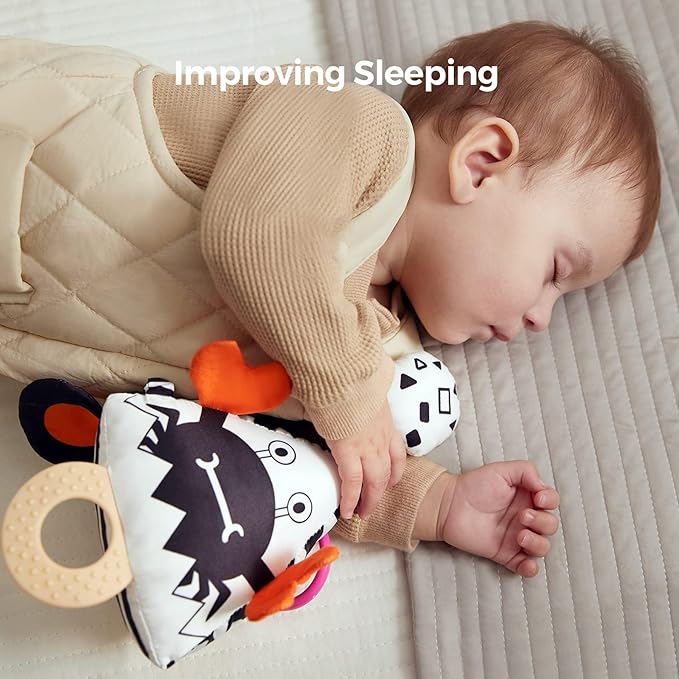
Key Components of a Baby Care Routine
Share
Key Components of a Baby Care Routine
1. Feeding
-
Newborn (0-3 months):
- Breastfeed or formula-feed every 2-3 hours (8-12 times daily).
- Watch for hunger cues: rooting, sucking on hands, or fussiness.
- Burp baby during and after feeds to reduce gas.
-
3-6 months:
- Feeding frequency may reduce to 6-8 times daily as babies consume more per session.
- Introduce bottle-feeding if transitioning from breastfeeding, ensuring proper sterilization of bottles.
-
6-12 months:
- Begin introducing solid foods around 6 months (purees like mashed avocado or rice cereal).
- Continue breast milk or formula (4-6 feeds daily) alongside solids.
- Offer water in a sippy cup with meals.
- Tip: Always consult a pediatrician before introducing solids. Use BPA-free bottles and utensils for safety.
2. Sleeping
-
Newborn:
- Sleeps 14-17 hours daily, in short 2-4 hour stretches.
- Place baby on their back in a safe sleep environment (firm crib mattress, no loose bedding).
-
3-6 months:
- Sleep consolidates to 12-15 hours, with longer nighttime stretches (5-6 hours).
- Establish a bedtime routine: bath, story, or lullaby.
-
6-12 months:
- Aim for 11-14 hours of sleep, including 1-2 naps (1-2 hours each).
- Maintain consistent sleep schedules to regulate their internal clock.
- Tip: Use a white noise machine or blackout curtains to create a soothing sleep environment.
3. Diapering and Hygiene
-
Newborn:
- Change diapers every 2-3 hours or after feeds (8-12 times daily).
- Use hypoallergenic wipes or warm water for sensitive skin.
- Bathe 2-3 times weekly with mild, fragrance-free baby soap.
-
3-6 months:
- Diaper changes reduce to 6-8 times daily.
- Check for diaper rash; apply zinc-based cream if needed.
-
6-12 months:
- Diaper needs may decrease as babies start potty training cues (around 12 months for some).
- Daily baths may be needed as babies get messier with solids.
- Tip: Keep a stock of diapers, wipes, and rash cream handy. Look for eco-friendly or hypoallergenic options on Shopee PH.
4. Play and Development
-
Newborn:
- Focus on sensory stimulation: high-contrast toys, gentle music, or tummy time (1-5 minutes, 2-3 times daily).
- Respond to coos and smiles to build bonding.
-
3-6 months:
- Encourage reaching and grasping with rattles or soft toys.
- Increase tummy time to 15-20 minutes daily to strengthen muscles.
-
6-12 months:
- Introduce interactive toys (stacking cups, shape sorters) to boost cognitive skills.
- Support motor skills with crawling or assisted walking activities.
- Tip: Choose safe, non-toxic toys from trusted Shopee PH sellers to spark curiosity.
5. Health and Safety
-
Newborn:
- Schedule regular pediatric checkups (1, 2, and 3-month visits).
- Monitor for fever, unusual fussiness, or feeding issues.
-
3-6 months:
- Start vaccinations as per pediatrician’s schedule (e.g., DTaP, Hib).
- Baby-proof your home as mobility increases (cover outlets, secure furniture).
-
6-12 months:
- Continue vaccinations and monitor developmental milestones (sitting, babbling).
- Use safety gates and non-slip mats for active babies.
- Tip: Keep a first-aid kit and pediatrician’s contact handy. Shop for safety gear like corner guards on Shopee PH.
6. Emotional Bonding
-
All Stages:
- Spend quality time through cuddling, talking, or singing to build trust.
- Respond to cries promptly to foster security.
- Involve family members to create a supportive environment.
- Tip: Use a soft baby carrier for closeness during daily tasks, available on Shopee PH.
Sample Daily Routine (6-12 Months)
- 7:00 AM: Wake up, breastfeed/formula, diaper change.
- 8:00 AM: Breakfast (puree or soft solids), playtime with toys.
- 9:30 AM: Morning nap (1-2 hours).
- 11:30 AM: Feed, tummy time, or outdoor stroll.
- 1:00 PM: Lunch (solids), diaper change.
- 2:00 PM: Afternoon nap (1-2 hours).
- 4:00 PM: Feed, interactive play (e.g., stacking toys).
- 6:00 PM: Dinner, bath, bedtime routine (story, lullaby).
- 7:30 PM: Bedtime feed, sleep.
- Night: 1-2 feeds as needed.
Tips for Parents
- Flexibility: Babies’ needs change, so adapt routines as they grow.
- Self-Care: Rest when baby naps to avoid burnout.
- Organization: Use Shopee PH to stock up on essentials like diapers, feeding gear, or toys to save time.
- Community: Join parenting groups on X or local forums for tips and support.
